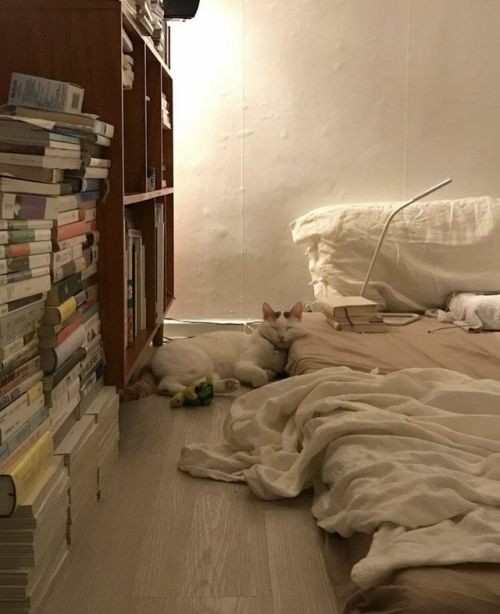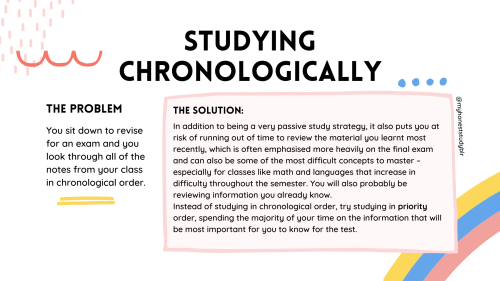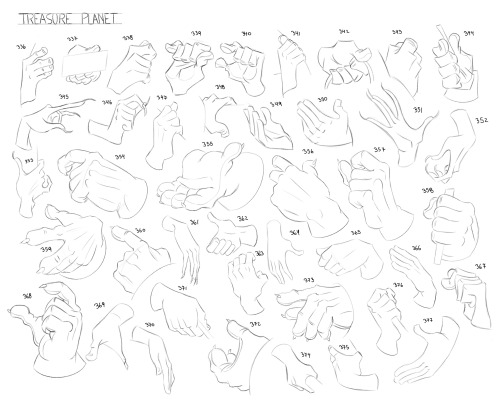Back To School Series #2 - HOW TO BE DISCIPLINED
Back to school series #2 - HOW TO BE DISCIPLINED

Welcome to this new post of my #backtoschoolseries!! if you haven’t already checked my last back-to-school related post you can do it here :D
The main topic of this post is discipline and how you can learn to manage it. When I was repeating my first med school year I learned how to discipline myself and it let me have a life apart from my studies. I used to wake up every day at 5.45 am for my morning workout, go to uni, come back home and study, cook my meals and go to bed early enough. I was also able to spend some free time with my friends and family during the weekends. This routine helped me manage my time, gave me a sense of accomplishment and made me go to bed almost every day knowing I had my sh*t together.
So how did I manage to develop this busy routine AND pass my first year? Continue to read!
Know the difference between motivation and self-discipline. Motivation is what will get you started, and is powered by your WHY. WHY do you want to go to college? WHY do you want to lose 10 pounds? WHY do you want to run a marathon? All of the answers to these questions are the main motor of your motivation. And motivation is the motor of discipline. Discipline is what will make you study every day so you’ll have those grades that will make you get into the college of your dreams. Discipline is what will make you wake up at 6 am every morning to go for a run. In other terms, discipline is what you need in order to keep going and stay on track. Discipline can’t exist without motivation and motivation is nothing without discipline.
We all practice discipline is some aspects of our life. For some of us, it will be waking up every morning at a reasonable hour in order to not be late for school. For others, it will be taking their medication every day in order to stay healthy. So stop telling yourself you don’t have any discipline or willpower because you won’t even be reading this post otherwise.
Discipline is a skill, and like every other skill, it has to be practiced every day. You have to put effort and focus in what you want to achieve and sometimes you’ll have to literally force yourself to get things done. Like I said in my previous post about motivation, no one really wants to wake up at 6 every morning to do a workout, especially if it’s dark and cold outside, and that your bed is begging you to stay.
Know yourself, and know what your weaknesses are. When you acknowledge these, you can find strategies to overcome them. If you want to go to bed earlier but you’re always on your phone till late at night, try to force yourself to put your phone in another room when you go to bed. If you’re always distracted by your Instagram notifications whilst studying, put your phone in airplane mode, or delete the app from it. If you just can’t control yourself over junk food, just don’t buy it. Remove every temptation so you’ll only focus on what’s important.
Plan your days ahead and plan your future. Again, ask yourself WHY you want to be disciplined, and WHAT the willpower you want to develop will bring into your life. The advantages of you being more disciplined have to overcome the reasons why you shouldn’t be, and that’s how motivation comes in the way.
Know that sometimes sh*t happens. That’s why you need a plan B. Having a backup plan doesn’t mean you don’t believe in your dreams, it just means that you are some kind of realistic about life and you know that it doesn’t always go as you wished it would. Having a plan B will make everything a bit more flexible and you’ll feel less anxious about your goals.
If you’re trying but you just can’t find any willpower in what you want to do, ask yourself if there’s something that’s preventing you from being disciplined. Are you sure you’re doing whatever you’re doing because you want it? Or are you doing it to please someone else? Are you scared of the outcome? Do you feel something is going wrong? It’s really important for you to have this little talk with yourself so you can focus on what you really want in your life because when your goals are genuine and clear, motivation comes by itself and discipline will follow.
Remember that it’s ok to screw up sometimes. You are not a robot and it is totally normal to have days where you don’t feel like it. Resting is also part of the process and will help you clear your vision and regain all the precious energy you need :) Forgive and take care of yourself!
I honestly think this post should be related to my post about motivation (if you haven’t read it already, I invite you to do it now!)
As usual, I hope these tips will be useful! I’m curious to know how do you guys practice discipline :)
(PS : sorry for my english)
Studygram
More Posts from Amandadiamond and Others

Backstage at Ralph & Russo Spring 2017 Couture

I miss you so much…😢 r.i.p. my endless love Loki ❤ (? - 2018)
Hi dear Lumen,
Do you have any tips on how to study more effectively and/ or memorize better because it would help a lot. Thank you🤍 Have a great day/evening!
Hi darling,
As you may know, I am a maestra at organizing, creating systems, and simplifying things in order to maximize efficiency - and that applies for studying as well. 📚
1. Learn how you learn, in order to learn better!
I often emphasize the importance of self-knowledge and working with instead of against yourself. In this case, that translates as working with your abilities instead of forcing yourself to learn in a dry, outdated, uniform manner that doesn't align with you, just because school, college, or your family says so.
Are you a visual learner (through the eyes)? Then write down your lessons in a concise, aesthetic manner, this will help you memorize easier. Add diagrams, illustrations, or even just sketches related to the lesson, as it further helps with memorizing.
Are you an auditive learner (by listening and speaking)? Then read your lessons out loud. Record yourself if it helps, play it back until you can recite it back. Ask friends to help with rehearsing for extra support.
Are you a haptic learner (by touch and feeling)? - This one's more tricky, but you can employ some activity while studying, such as braiding, tapping your fingers or feet, gesturing, etc.
There are theories of other types of learning, as mentioned here and here. If the above 3 don't apply to you, do a quick research to see what resonates with you more, in order to find a more efficient technique. It can make all the difference in your study routine.
2. Figure out a routine that works for you.
Do you study better in the evening/at night? When it’s quiet and nobody is disturbing you and your schedule is clear? You may be a night owl and it’s your natural circadian rhythm to have higher brain activity and energy towards the evening/night - if so, take advantage of it.
Do you study better in the morning? Because you feel fresh and focused? You’re likely an early bird, so arrange your study schedule to follow this rhythm accordingly, you'll be much more productive.
If you have a chaotic schedule that doesn't allow much flexibility for the above, simply work with your available schedule to the best of your ability. Move household chores and other errands around so that your peak efficiency timeframe can be used for the bulk of your studying.
3. Additional tips:
Do rewards help in completing a task? If yes, try something useful like taking a sip of water after reading 3 paragraphs, or that you can watch your favorite show after finishing studying, or going to the museum, or whatever it is that makes you excited at the moment!
Do you have a short attention span? Don’t worry about it, just divide your studying in brief intervals of 30-60 min, with a small break inbetween to keep your concentration sharp. If you start to get distracted, remember why you’re doing this (your academic goals, whatever they are), and if that doesn’t work, maybe you just need some fresh air or a cup of tea to start fresh.
If you have issues staying on track, you can ask a friend or family member to hold you accountable by checking up on you.
Don’t forget to make studying enjoyable as possible: use colorful stationary, set up a nice desk that fills you with pleasure or excitement when you see it (ie. plants, lighting, pretty decor, books organized in a satisfying way, etc), a fluffy pillow against your back, the list goes on. Get creative! This is your space.
Another way to make studying enjoyable is thinking out of the box. If you prefer a more streamlined, digital system, use an app that makes the process of studying more enjoyable - whether it’s something as basic as the native Notes app on macOS, Word docs, or a professional tool like Ulysses where you can organize everything to your heart’s content.
Visual inspiration and moodboards: you can also browse through Pinterest boards for inspiration or even follow Tumblr studyblr-ers to make studying as a process more aesthetic and appealing. There is a truth that the imagery we expose ourselves to inspires our actions; when you have your dashboard filled with pretty desks and notebooks and tidy handwriting from bookblr and studyblr content, it can boost your motivation. (Just be mindful not to fall into the trap of unhealthy perfectionism, or associating your self-worth with productivity - neither of those things will help you in any way, and will only cause anxiety, low productivity and self-worth issues.)
If you fall off track, don't be hard on yourself. It happens to the best of us. If you really want to finish what you started, just do what you can, take it one step at a time, and remember that you only fail if you stop trying. Give yourself space to do your best (even if that is 5% on some days, it's still good enough), and improve along the way. You can do this! 👏🏻👏🏽👏🏿
Hope this helps. Good luck and have a productive day/evening ahead to all ambitious ladies! 💞 ☕️
-Lumen
Myths, Creatures, and Folklore
Want to create a religion for your fictional world? Here are some references and resources!
General:
General Folklore
Various Folktales
Heroes
Weather Folklore
Trees in Mythology
Animals in Mythology
Birds in Mythology
Flowers in Mythology
Fruit in Mythology
Plants in Mythology
Folktales from Around the World
Africa:
Egyptian Mythology
African Mythology
More African Mythology
Egyptian Gods and Goddesses
The Gods of Africa
Even More African Mythology
West African Mythology
All About African Mythology
African Mythical Creatures
Gods and Goddesses
The Americas:
Aztec Mythology
Haitian Mythology
Inca Mythology
Maya Mythology
Native American Mythology
More Inca Mythology
More Native American Mythology
South American Mythical Creatures
North American Mythical Creatures
Aztec Gods and Goddesses
Asia:
Chinese Mythology
Hindu Mythology
Japanese Mythology
Korean Mythology
More Japanese Mythology
Chinese and Japanese Mythical Creatures
Indian Mythical Creatures
Chinese Gods and Goddesses
Hindu Gods and Goddesses
Korean Gods and Goddesses
Europe:
Basque Mythology
Celtic Mythology
Etruscan Mythology
Greek Mythology
Latvian Mythology
Norse Mythology
Roman Mythology
Arthurian Legends
Bestiary
Celtic Gods and Goddesses
Gods and Goddesses of the Celtic Lands
Finnish Mythology
Celtic Mythical Creatures
Gods and Goddesses
Middle East:
Islamic Mythology
Judaic Mythology
Mesopotamian Mythology
Persian Mythology
Middle Eastern Mythical Creatures
Oceania:
Aboriginal Mythology
Polynesian Mythology
More Polynesian Mythology
Mythology of the Polynesian Islands
Melanesian Mythology
Massive Polynesian Mythology Post
Maori Mythical Creatures
Hawaiian Gods and Goddesses
Hawaiian Goddesses
Gods and Goddesses
Creating a Fantasy Religion:
Creating Part 1
Creating Part 2
Creating Part 3
Creating Part 4
Fantasy Religion Design Guide
Using Religion in Fantasy
Religion in Fantasy
Creating Fantasy Worlds
Beliefs in Fantasy
Some superstitions:
Read More
general study tips
this is just a quick list of study habits that work for me, as a straight a’s student
1. even if it’s not in your teacher’s presentation written on a slide, if you hear your teacher mention a fact, WRITE IT DOWN. you might need it later for a test.
2. when you’re rewriting your notes/compiling a study guide, pretend you’re making it for someone else. include everything, even if you think you know it. (unless you’re low on time, in which case, just write what you don’t know)
3. when you’re trying to learn a new concept, pretend you’re teaching it to someone else. this is a form of active learning, and the act of breaking the concept down into steps that you can teach will improve your understanding of the concept. (for the longest time, i actually didn’t even know this was an actual study technique, because i’ve always done it subconsciously!)
4. don’t over color your notes!! if you really need a key for all the colors, then you’re using way too many. try to stick with 2-3 pens/pencils. for me, i write most of my notes in black ink or pencil and i write the important concepts i might need to find quickly later (such as vocabulary) in red or blue pen.
5. have your water bottle next to you (so you remember to stay hydrated; this makes focusing easier as well), as well as any other things you might need during a study session so you don’t have to keep getting up to get stuff (which is pretty distracting for me as i’m easily sidetracked).
6. make it a habit to write lists of everything you need to do by the end of the weekend (or the end of that day, depending on how much work you have). this’ll help you familiarize yourself with your tasks so you have a clear plan of what needs to get done.
7. (not really necessary, just something i like to do!) learn to eat with your non-dominant hand so you can eat and take notes and turn pages w/out ripping them instead of scrolling through social media. keep in mind that sometimes, meal times are for taking your mind off school so unless you’re really pressed for time, it’s not a huge deal if you spend this time w/passive reading, texting friends, etc.
8. when you’re assigned a research project, COME UP WITH A THESIS FIRST so you know what to research. try to get all your research done within the first two days or so, to have more time to plan out how you’re going to structure it. then get your draft done (something is better than nothing) so you can revise at your own pace instead of rushing at the last minute.
9. prioritize your homework!! as someone who spends hours fencing and even misses school for fencing tournaments, is part of symphonic band, and on the robotics team (build season is suuuuuper busy), i can’t express how important this is!! if you have math first period, get that done first, whereas if you have math last period, you can do it at lunch and spend your time working on something that’s due in the morning. don’t do this all the time, but if you need to, know which teachers are more strict with due dates so if you really do need an extension, you’ll be asking the least strict teacher and will have much better chances of getting said extension.
10. if you study at home like me, change into new clothes (comfy clothes, but not pajamas) before cracking open your textbooks. it’ll help make you feel more refreshed and ready to start your homework, but not confined to uncomfortable uniforms from school. tie up your hair, if it’s long. try to study at a table/desk rather than in bed (for sleeping not studying) or on the floor (bad for your posture).
11. check out this post for productive things you can do when you aren’t studying, but still want to be productive!
hope these helped some of you!!
xoxo, ren






photos under my "dream home" board in pinterest.










my masterpost | my studygram | ask me anything
[click images for high quality]
[transcript under the cut]
Other advice posts that may be of interest:
How To Study When You Really Don’t Want To
Active Revision Techniques
How To Do Uni Readings
How to Revise BIG Subjects
Keep reading
“The fear of getting hurt again has only led you to hurt yourself. Come out now. Come out while there’s still some living left to be done. This person who hurt you doesn’t deserve to still dictate your life decisions. Your discipline and dedication to structure is an illusion. You’re still powerless because you’re letting certain incidents define your life. If you really want to be in control again, you have to learn to let go again. It’s the only way.”
— Ryan O'Connell









500 hands in 5 days 💀 ! feel free to use them for reference ❤️
> 500hands challenge
10 small tips to improve your productivity
Who can resist reading another little post full of tips to help you get more work done? Here is a few things that I find useful when trying to get myself motivated.
Clear desk, clear mind - I like to organise things before I start working. If things are messy, I get a little preoccupied and procrastinate even more. My suggestion is clear your desk, sort everything you’ll need to study and get on!
The two minute rule - If a task that needs to be done takes less than two minutes, just do it. My dad has often suggested that this is a great way to sort out your priorities and so far it has worked for me. Things like check my emails, cross off events from my planner, file something away don’t take long but get you in the mood for productivity. As they say “object in motion, stay in motion”.
Break your time up - Schedule your study time and any breaks you need to take. This helps structure your day and acts as a motivation to get things done. Especially if you can reward yourself at the end!
Leave your phone alone - Like most people I use my phone constantly but when I’m trying to work, it is best to leave it alone. Out of sight, out of mind. Try leaving it on silent and behind you so you aren’t tempted to pick it up after every beep. Use your break times to check it.
Find your top three to five priorities - Seeing a long list of things to do is usually, for some people, kind of counterproductive. Figure out the main things that need to be done and work on those. If you’re able to complete those main things, you’ll feel like you’ve accomplished the days necessities and may even want to complete some more.
Try using a mindmap instead of a to do list - Apparently using a mindmap layout instead of a traditional list can help boost productivity. It is a little more funky way to see all your outstanding tasks and might not look as overwhelming as a super long list.
Wear headphones - You don’t have to always listen to things but it can help block out any noise that can distract you. If you’re someone that likes some music, try songs with little or no words. This is a great playlist by Spotify.
Don’t multitask - As much as you think you can do it, trying to multitask usually ends up in a confused mess and takes twice the time. Stick to one task at a time. If you think of something you need to do, write it down and do it later.
Change things up - Doing the same things in the same place can get boring. Make the effort every now and then to change where you’re studying or how you’re studying. This can include moving your studying from the desk to the kitchen table for a change of scenery, or making flash cards instead of annotating your notes. Studying with a family member or friends is a fun way to get some work done!
Be positive - Most people have times when they just don’t want to study or anything, it is natural. However it is not worth sitting staring at your books in an unmotivated mood just waiting to feel inspired. If you’re not feeling it, do something else for a while. Come back to it a bit later and have another go. Usually walking away and coming back is all you need to feel more productive.
I hope these few tips are useful! These are the kind of things that work for me, so give them a shot and let me know if they help. Best of luck with your studies x
-
 lireb-librarian liked this · 1 month ago
lireb-librarian liked this · 1 month ago -
 presannenrede liked this · 1 year ago
presannenrede liked this · 1 year ago -
 classicstellar liked this · 1 year ago
classicstellar liked this · 1 year ago -
 sislearning liked this · 2 years ago
sislearning liked this · 2 years ago -
 hellopickney liked this · 2 years ago
hellopickney liked this · 2 years ago -
 nightmare-moon-luna reblogged this · 2 years ago
nightmare-moon-luna reblogged this · 2 years ago -
 selfimprovmint reblogged this · 3 years ago
selfimprovmint reblogged this · 3 years ago -
 thatbrokepemguin liked this · 3 years ago
thatbrokepemguin liked this · 3 years ago -
 1804007 reblogged this · 3 years ago
1804007 reblogged this · 3 years ago -
 koushiki-das liked this · 3 years ago
koushiki-das liked this · 3 years ago -
 crw285 liked this · 3 years ago
crw285 liked this · 3 years ago -
 crw285 reblogged this · 3 years ago
crw285 reblogged this · 3 years ago -
 user2838391 liked this · 3 years ago
user2838391 liked this · 3 years ago -
 maijacarr liked this · 3 years ago
maijacarr liked this · 3 years ago -
 blackcatmaya liked this · 3 years ago
blackcatmaya liked this · 3 years ago -
 mariaauxiliadoraa reblogged this · 3 years ago
mariaauxiliadoraa reblogged this · 3 years ago -
 icyempress reblogged this · 3 years ago
icyempress reblogged this · 3 years ago -
 notananxiouswreck reblogged this · 3 years ago
notananxiouswreck reblogged this · 3 years ago -
 feminine-fancy-favoured liked this · 3 years ago
feminine-fancy-favoured liked this · 3 years ago -
 india422 liked this · 3 years ago
india422 liked this · 3 years ago -
 abeautifulwomanhascome liked this · 3 years ago
abeautifulwomanhascome liked this · 3 years ago -
 irinizhar liked this · 3 years ago
irinizhar liked this · 3 years ago -
 anadyomeni liked this · 3 years ago
anadyomeni liked this · 3 years ago -
 blushtoned liked this · 3 years ago
blushtoned liked this · 3 years ago -
 love-mayceemay liked this · 3 years ago
love-mayceemay liked this · 3 years ago -
 violllah liked this · 3 years ago
violllah liked this · 3 years ago
95 posts